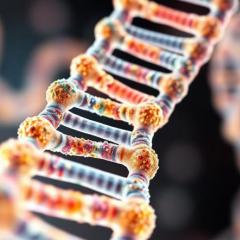Work by scientists at The University of Queensland could open the door to a new way of treating certain breast cancers.
In Australia, it accounted for 28 per cent of all cancer diagnoses in 2006.
By 2015, the number of new breast cancer cases among women in Australia is projected to be 22 percent higher than in 2006, with an estimated 15,409 women expected to be diagnosed with the disease.
While more women are surviving breast cancer than ever before, statistics show that it is still killing too many people - 458,000 women worldwide and 12,000 women and 70 men in the UK in 2008 alone.
Not every woman’s breast cancer is the same. Some breast cancer cells only grow in the presence of the female sex hormone oestrogen and are therefore known as oestrogen receptor-positive breast cancers.
Thanks to funding from Scottish-based charity the Association for International Cancer Research (AICR) Professor Tom Gonda and his team at The University of Queensland's Diamantina Institute are studying these oestrogen receptor-positive breast cancers - which comprise about two-thirds of all cases - and a protein called MYB.
They have previously shown that the MYB protein can allow these breast cancer cells to keep dividing, even in the presence of DIAs - molecules which usually either turn the breast cancer cells into different, non-growing cell types, or kill them.
One way MYB does this is by turning off mechanisms which cause the cells to undergo 'cell suicide', so blocking MYB in the presence of DIAs could one day be developed into new or improved treatments for breast cancer.
Professor Gonda is using his AICR grant to investigate what other genes and proteins MYB controls. Using breast cancer cells and model systems which mimic breast cancers, he will test drugs which block the activity of MYB or of any proteins he identifies, in combination with DIAs, to see if they increase 'cell suicide'.
“This research should both provide fundamental insights into the role of MYB in breast cancer, and will hopefully pave the way for a novel treatment strategy for the oestrogen receptor-positive form of this disease,” he said.
Dr Mark Matfield, AICR Scientific co-ordinator, described the project as: “A perfect example," of how the fundamental type of research supported by AICR can lead to new possibilities to treat cancer.
“Without research, we have little hope of developing the new drugs which will help cancer patients in future,” he said.
Media: Tel/fax 01334 840293: mobile 07743035937 email: Rosemary.Dewar@aicr.org.uk
Compiled on behalf of AICR by Rosemary Dewar PR Consultant
Tel/fax 01334 840293: mobile 07743035937
email: Rosemary.Dewar@aicr.org.uk



